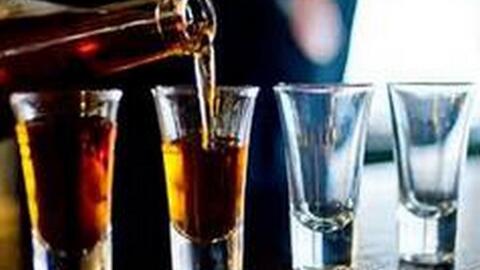Drinking to get “drunk” puts your health and your life in danger. Ingesting too much alcohol in a short amount of time can lead to serious and sometimes deadly health effects.
Alcohol overdose, also known as alcohol poisoning, can cause dangerous effects ranging in effects from vomiting, irregular breathing and heart rate to seizures, coma, and death.
Anyone who drinks alcohol is at risk of overdose, including young children and pets exposed accidentally. Children and pets are sensitive to alcohol and may suffer serious health effects following exposure to even small amounts of alcohol.
Summer is a time of year filled with activities that often involve easy access to alcoholic beverages — holidays, prom, graduation, vacations, and get-togethers with friends and family. With more time to socialize and easy access to alcohol, the risk for alcohol overdose is high.
“Alcohol poisoning is not a myth, it is life-threatening and requires immediate medical attention,” Diane Calello, executive and medical director of the New Jersey Poison Control Center, said.
“Drinking too much alcohol can cause you to become very sick, and may lead to hospitalization and long-lasting health effects,” Calello said.
“The dangerous effects of alcohol overdose happen quickly, often going from bad to worse in a short amount of time. Consuming excessive amounts of alcohol can cause devastating complications, including death.”
Toxic amounts of alcohol cause the areas of the brain responsible for life support functions (breathing, temperature control, heart rate) to slow and eventually shut down.
Someone experiencing alcohol poisoning or overdose can stop breathing or choke on their vomit while unconscious. As alcohol levels continue to rise in the body, a person sleeping may slip into a coma without anyone knowing.
The effects of alcohol are often delayed. Many factors influence the amount of time between drinking alcohol and feeling its intoxicating effects — gender, weight, how much food is in the stomach, hormones, metabolic rate, race, as well as interactions with prescriptions, over-the-counter medicines, dietary/herbal supplements, and illegal drugs.
Alcohol poisoning is preventable. Drinking alcohol responsibly decreases the risk of dangerous health effects. Keep these important facts in mind; it could mean the difference between life and death.
Know the critical signs of alcohol poisoning:
- Mental confusion, stupor, coma (or person cannot be woken up)
- Slow or irregular breathing and heart rate
- Blueish/pale skin color or low body temperature (hypothermia)
- Increased blood pressure
- Vomiting
- Seizures
“Sleeping it off” is never a safe option
There are a lot of misconceptions about alcohol. Alcohol poisoning is a medical emergency that requires immediate help.
A person who appears to be very drunk or has passed out may be showing early signs of alcohol poisoning and be in real danger.
As dangerous changes continue inside the body, a person who appears to be sleeping may in fact be unconscious and in a coma. Because those around them assume the person is “sleeping it off” they miss the warning signs and don’t know to get help.
Understand how much you’re drinking
Some people may consider the number of drinks they’ve had, but don’t consider the volume or alcohol content of those drinks.
According to the National Institute on Alcohol Abuse and Alcoholism (NIAAA), a standard drink is said to be: 12 oz of regular beer (about 5% ABV*), 5oz of wine (about 12% ABV), or 1.5 oz of 80-proof distilled liquor (about 40% ABV).
Most craft beers have a higher ABV than regular beer. It can be difficult to know exactly how much alcohol a person is consuming when drinking cocktails at home, a restaurant, or a party since drinks are inconsistently measured in these settings. *ABV stands for alcohol by volume.
Don’t guess, make the call to the medical professionals at Poison Control
Immediate medical help is required. Call your local poison control center at 1-800-222-1222. Get help, 24/7. If the person is unconscious, not breathing, hard to wake up, or having a seizure, immediately call
9-1-1. Under the Overdose Prevention Act anyone who, in good faith, seeks medical assistance for an overdose victim is immune from arrest and prosecution, as is the person suffering the overdose.
Anyone regardless of age, who has concerns about the effects of alcohol, alcohol overdose/poisoning, or alcohol-related illnesses, should call the medical professionals at their local poison control center right away for help, 1-800-222-1222.
Alcohol poisoning is a medical emergency. Poison control centers are medical emergency and information-based resources whose priority is to ensure the health and well-being of the caller without hesitation or bias.
All calls to the poison control centers are confidential and free of charge.
If someone is unconscious, not breathing, hard to wake up, or having a seizure, immediately call 9-1-1.
New Jersey residents can contact the NJ Poison Control Center: Call 1-800-222-1222; Text 973-339-0702; Chat via the website.
